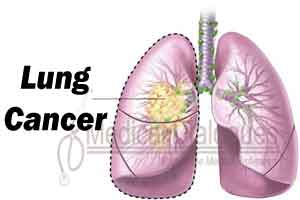- Home
- Editorial
- News
- Practice Guidelines
- Anesthesiology Guidelines
- Cancer Guidelines
- Cardiac Sciences Guidelines
- Critical Care Guidelines
- Dentistry Guidelines
- Dermatology Guidelines
- Diabetes and Endo Guidelines
- Diagnostics Guidelines
- ENT Guidelines
- Featured Practice Guidelines
- Gastroenterology Guidelines
- Geriatrics Guidelines
- Medicine Guidelines
- Nephrology Guidelines
- Neurosciences Guidelines
- Obs and Gynae Guidelines
- Ophthalmology Guidelines
- Orthopaedics Guidelines
- Paediatrics Guidelines
- Psychiatry Guidelines
- Pulmonology Guidelines
- Radiology Guidelines
- Surgery Guidelines
- Urology Guidelines
Eat yogurt and fiber to ward off lung cancer, says JAMA study

USA: Yogurt and fiber have already found to be beneficial for gastrointestinal cancer and cardiovascular disease. Now, a recent study published in the journal JAMA Oncology has found protective role of yogurt and dietary fiber against lung cancer.
Although dietary fiber (main source of prebiotics) and yogurt (a probiotic food) confers various health benefits via modulating metabolic pathways and gut microbiota, their association with lung cancer are not well investigated. Jae Jeong Yang, Vanderbilt University Medical Center, Nashville, Tennessee, and colleagues evaluated the individual and joint associations of dietary fiber and yogurt consumption with lung cancer risk and assessed the potential effect modification of the associations by lifestyle and other dietary factors.
The study involved 1 445 850 adults from studies that were conducted in the United States, Europe, and Asia. Data analyses were performed between November 2017 and February 2019. Participants who had a history of cancer at enrollment or developed any cancer, died, or were lost to follow-up within 2 years after enrollment were excluded.
Participants were divided into five groups, according to the amount of fiber and yogurt they consumed. Those with the highest yogurt and fiber consumption had a 33% reduced lung cancer risk as compared to the group who did not consume yogurt and consumed the least amount of fiber.
The analytic sample included 627 988 men, with a mean (SD) age of 57.9 (9.0) years, and 817 862 women, with a mean (SD) age of 54.8 (9.7) years.
Key findings include:
- During a median follow-up of 8.6 years, 18 822 incident lung cancer cases were documented.
- Both fiber and yogurt intakes were inversely associated with lung cancer risk after adjustment for status and pack-years of smoking and other lung cancer risk factors: hazard ratio, 0.83 for the highest vs lowest quintile of fiber intake; and hazard ratio, 0.81 for high vs no yogurt consumption.
- The fiber or yogurt associations with lung cancer were significant in never smokers and were consistently observed across sex, race/ethnicity, and tumour histologic type.
- When considered jointly, high yogurt consumption with the highest quintile of fiber intake showed more than 30% reduced risk of lung cancer than nonyogurt consumption with the lowest quintile of fiber intake (hazard ratio, 0.67) in total study populations; hazard ratio 0.69 in never smokers), suggesting potential synergism.
"Our findings suggest a potential protective role of prebiotics and probiotics against lung carcinogenesis," concluded the authors.
More Information: "Association of Dietary Fiber and Yogurt Consumption With Lung Cancer RiskA Pooled Analysis" published in the JAMA Oncology journal.
DOI: 10.1001/jamaoncol.2019.4107
Journal Information: JAMA Oncology

Disclaimer: This site is primarily intended for healthcare professionals. Any content/information on this website does not replace the advice of medical and/or health professionals and should not be construed as medical/diagnostic advice/endorsement or prescription. Use of this site is subject to our terms of use, privacy policy, advertisement policy. © 2020 Minerva Medical Treatment Pvt Ltd